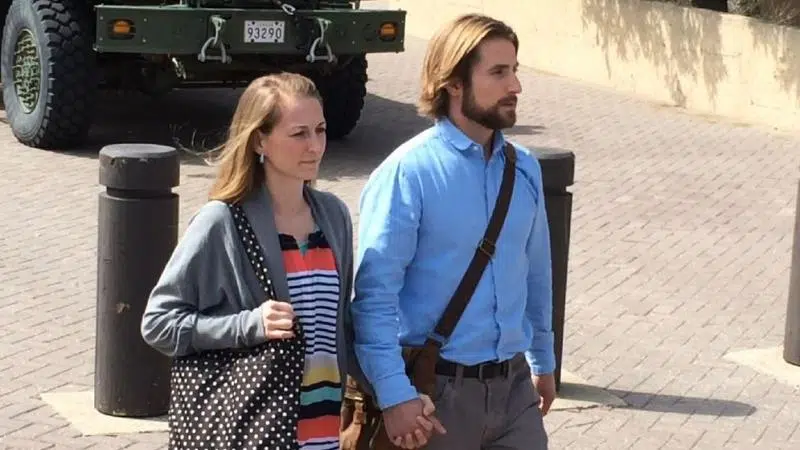
Judge and lawyers spar over admissible evidence in Stephan trial
LETHBRIDGE, AB – David and Collet Stephan were back in court Tuesday and called two witnesses who both appeared via video separately. The Stephans are each charged with one count of failing to provide the necessaries of life after their 19-month-old son Ezekiel died of bacterial meningitis back in March 2012.
Anthony (Tony) Gallagher works for Referral, Access, Advice, Placement, Information & Destination (RAAPID), a physician-to-physician consulting firm that works with Alberta Health Service (AHS) to find the appropriate specialists for specific cases.
Gallagher testified that he alerted the Alberta Children’s Hospital (ACH) in Calgary that Ezekiel would be coming in for treatment, but could not remember if he gave a “heads up” call to Chinook Regional Hospital in Lethbridge ahead of time to let them know that the child may need to stop for care in Lethbridge on the way from Cardston to Calgary.
Doing so, he told court, is a standard practice, but due to this incident happening more than seven years ago, it was too vague in his mind. The documented records from a potential call to Lethbridge was not available.


